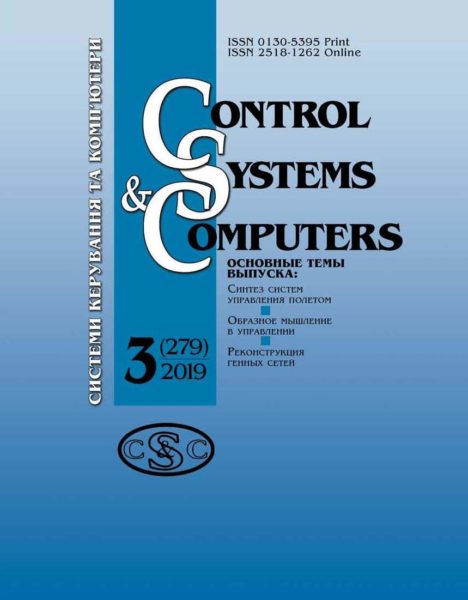Control Systems and Computers, N2, 2024, Article 4
https://doi.org/10.15407/csc.2024.02.035
Control Systems and Computers, 2024, Issue 2 (306), pp. 35-47
UDC 16.001.8+519,8.004.42
V.H. KOLISNYK, Senior Researcher of the Department of APP, Donbas State Engineering Academy, Ukraine,
ORCID: https://orcid.org/0000-0002-2313-9852, 72, Academic Str., Kramatorsk, 84301, Ukraine, v105shine@gmail.com
O.P. BODYK, PhD Philology, Associate Professor of English Philology Department, Mariupol State University, Ukraine, ORCID: https://orcid.org/0000-0003-4642-8371, Scopus Author ID: 57226887704, 6, Preobrazhenska Str., Kyiv, 03037, Ukraine, ostapb74@gmail.com
ALGORITHMIC APPROACHES TO UNIVERSAL ANALYSIS MODELS
The concept of analysis is being contemplated in its most comprehensive philosophical context. An endeavour is undertaken to systematise the examination and present it in the form of a systematic procedure, in essence, to construct a formal comprehensive analysis model. The generalised model combines normal data processing procedures with pairs of philosophical categories of the most generic form as components. The sequence of their application is determined. This order is based on the degree of generality of the categories. Consequently, several analysis models were acquired. Despite the observable consistency in the sequence of category application, a comprehensive analytical model has not yet been established based on this series. However, the analysis techniques that have been obtained can already be regarded as prototypes of practical algorithms, serving as the foundation for deductively deriving algorithms for actual computer programmes.
Download full text! (On English)
Keywords: analysis, algorithmic analysis model, analysis algorithm, generalized concepts, philosophical categories, system, element.
- Beaney, M. 2021. ” Analysis. The Stanford Encyclopedia of Philosophy”. / Edward N. Zalta (ed.). [online]. Available at: <https://plato.stanford.edu/entries/analysis/#1> [Accessed 21 Jul. 2021].
- Kolisnyk, V. 2020. “Formalization of the Decomposition Process”. Epistemological Studies in Philosophy, Social and Political Sciences, 3(2), pp. 26-43. (In Ukrainian).
https://doi.org/10.15421/342030 - Hodges, W. 2023. “Model Theory. The Stanford Encyclopedia of Philosophy”. / Edward N. Zalta & Uri Nodelman (eds.), [online]. Available at: https://plato.stanford.edu/archives/fall2023/entries/model-theory/ [Accessed 21 Mar. 2023].
- Kolesnyk, V.G. 2017. “On the possibility of a systematic study of the production management systems”. Problems of Programming, 2, pp. 48-60 (In Russian).
https://doi.org/10.15407/pp2017.02.048 - Kolisnyk, V., Bodyk, O. 2023. “Synthesis theory in action: deductive derivation of algorithms for application software”. Epistemological studies in Philosophy, Social and Political Sciences, 6 (2), pp. 11-26. https://doi.org/10.15421/342321
- Thomasson, A. 2022. “Categories”. The Stanford Encyclopedia of Philosophy (Winter 2022 Edition), Edward N. Zalta & Uri Nodelman (eds.). [online]. Available at: <https://plato.stanford.edu/entries/categories/> [Accessed 18 Jan. 2024].
- Ontologia [Ontology]. Wikipedia. [online]. Available at: <http://surl.li/eyzss> [Accessed 18 Jan. 2024] (In Ukrainian).
- Odrin, V. 2005. “Technology of scientific and technical creativity: new science and highly intelligent information metatechnology”. Bulletin of the National Academy of Sciences of Ukraine, 6. pp. 43-64 (іn Ukrainian).
Received 21.03.2024



